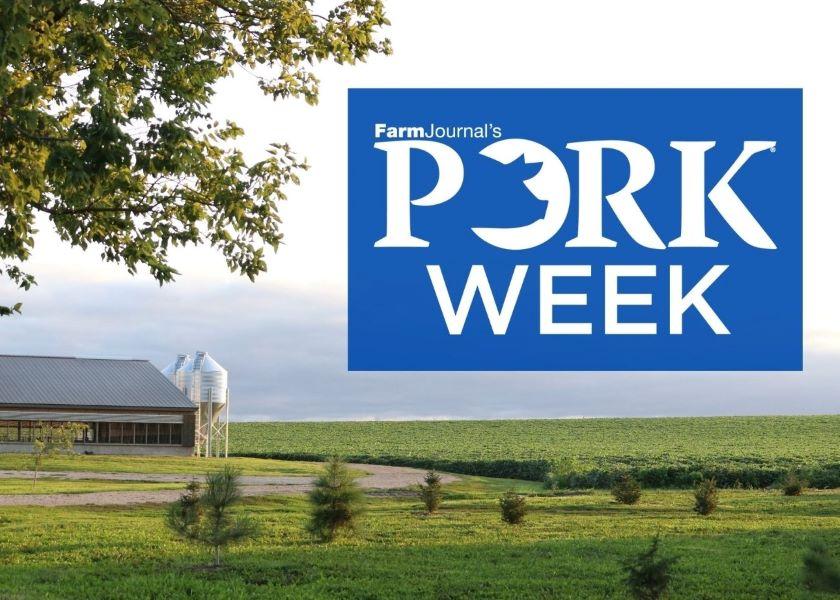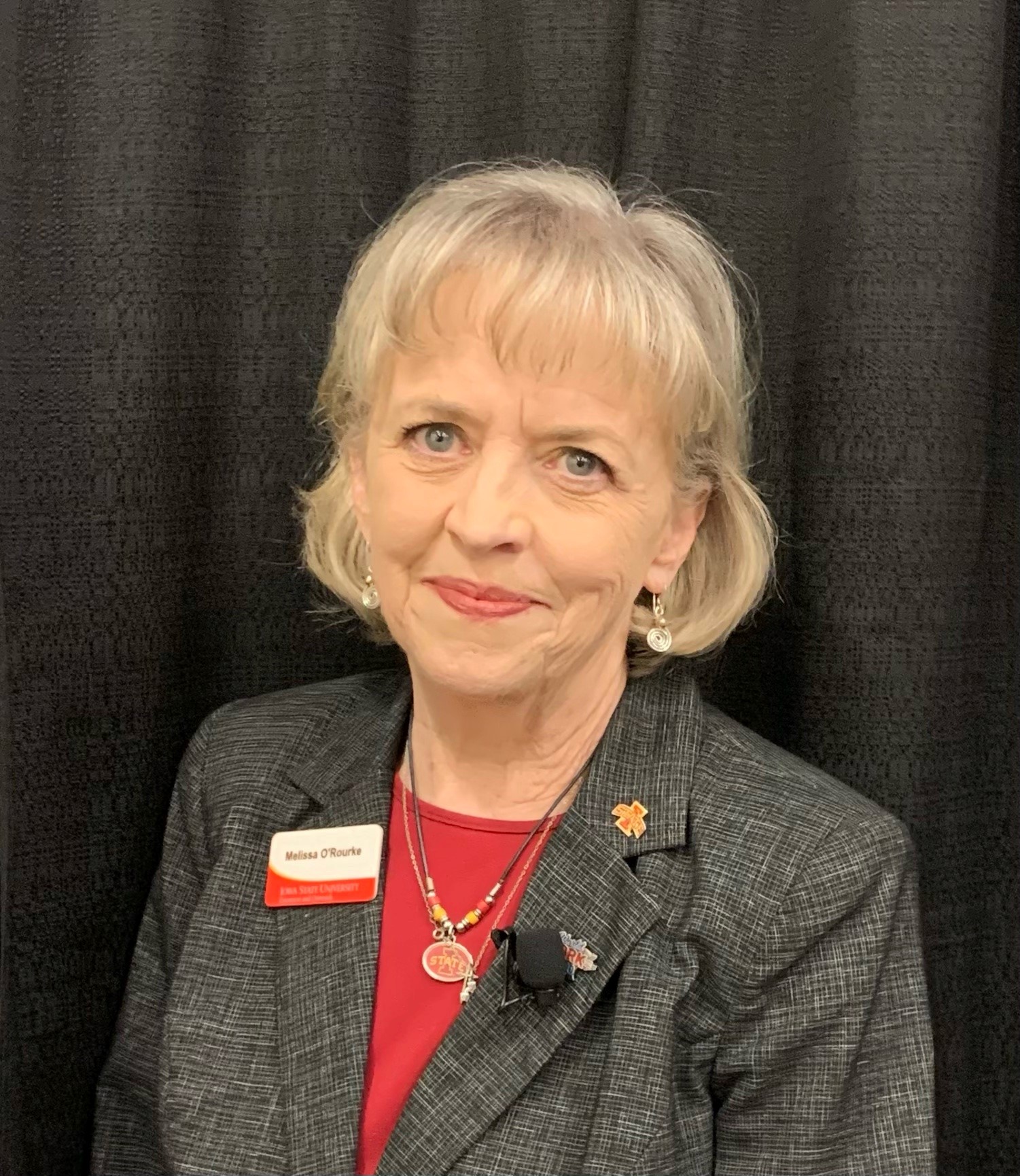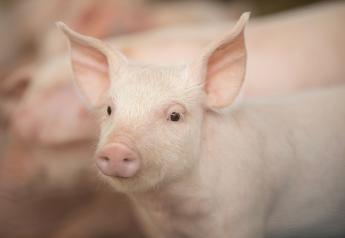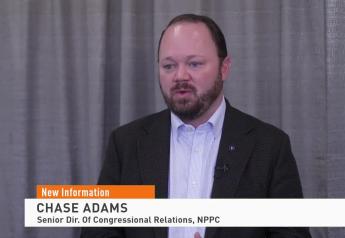10 Farm Transition and Estate Planning Mistakes

Conversations about family succession plans are difficult. In fact, 89% of farmers don’t have any kind of farm transfer plan, says Melissa O’Rourke, attorney and farm management/farm business specialist for Iowa State University Extension. Speaking at the 2021 World Pork Expo, O’Rourke said 60% of farmers don’t even have an updated will.

Melissa O'Rourke shared 10 farm transition and estate planning mistakes during her seminar at the World Pork Expo in Des Moines, Iowa.
Here are the 10 mistakes she says farmers make when it comes to their farm succession plans.
1. Procrastination: “Stop procrastinating!” O’Rourke says. “You update your production – you also have to update your estate planning. Stop putting it off! Your farm represents your life’s work.” Many people keep waiting for the perfect plan, but there is no perfect plan, and any plan is better than no plan at all. Determine what you are trying to accomplish short-term and long-term and remember, those who die with no plan get the state’s plan.
2. No plans are made for substitute decision-making and health-care directives: Power of Attorney and health-care planning and directives are critical, O’Rourke says. “Who can step into your shoes and make decisions for you? A Power of Attorney allows your ‘agent’ to act in your place if you’re unable to do that for yourself.” Name at least one alternate and spell everything out. Avoid co-POAs because that can get tricky and complicated. You may have different agents for healthcare/medical, business and financial, and you must be “competent” (have legal capacity) when you sign, she explains. “Have a living will where you say what your wishes are,” she adds. It expresses what life-sustaining procedures are desired. Consult with an attorney on these matters so you have exactly what you want, and talk to family members.
3. Communication failures: “There should be no family secrets in estate or transition planning,” O’Rourke says. “Everyone should know what’s going on! Set regular times for farm-family meetings, commit to the calendar, establish agendas and consider meeting facilitation by an outsider. Meet remotely if you have to,” she says. “Discuss the future early and often. If you want your legacy to be children who don’t talk to each other, by all means, don’t share your estate plans.”
4. Trying to treat everyone equally rather than fairly: “Treating everyone equally might be the most unfair thing you could do,” O’Rourke says. “About 80% of Americans receive no inheritance; among the 20% of Americans that receive some inheritance, the median amount is $49,000. Documents at AgDecisionMaker cover this topic, with thoughtful discussions on gifting, treatment of heirs and valuing sweat equity.”
5. Failure to take inventory: What property do you own and how do you own it? Real property includes land (and anything attached to it), buildings, fencing and subsurface tiling, O’Rourke says. Personal property is tangible (anything you can touch) and intangible (has value that you can’t touch, but you can use it, like stock). Make sure you know how property is owned, because there is no right of survivorship for tenants-in-common. “Fred and Wilma had three boys,” says O’Rourke in an example. “Each was going to get an 80-acre parcel of land. But when Fred died, those parcels are owned by Wilma.” Considerations include creditors, divorce, “borrowing” from parent’s accounts and other factors.” A form on AgDecisionMaker can help explain property ownership.
6. Making decisions based on incorrect information: There can be federal or state estate inheritance tax issues when a farm owner passes away – make sure you understand them, O’Rourke says. For example, there is no inheritance tax due in Iowa on shares left to a surviving spouse, any lineal descendants, or charitable, religious or educational institutions. Check the website for a quick review of rules, O’Rourke suggests, and see how gifting strategies may reduce the taxable estate.
7. Failure to maintain liquidity: “Death isn’t cheap,” O’Rourke points out. “Think about what happens at death and the costs associated with it. Cash may be needed to continue the farm operations at the time of death prior to the final estate settlement. Life insurance can be a good tool in the right place, but determine whether it fits into your goals.”
8. Failure to be organized: Ensure records can be found and used by you and others at incapacity or death. “You need a safe place that is still accessible to others,” O’Rourke says. “Inform others of how and where you’re keeping important information and have ‘show and tell’ sessions. Consider organizing documents in files or 3-ring binders. They’re easy to find and always ready to review.”
9. Failure to build a team of professionals: Professionals you may need on your team include legal, tax and/or accounting, insurance, real estate and spiritual. “See Ag Decision Maker File C4-61 for help and ideas on how to find an attorney,” O’Rourke suggests, or watch her short YouTube video on the topic.
10. Failure to continue the conversation: “Estate planning is never ‘done,’” O’Rourke says. “Have regular annual reviews and think about life-event triggers like births/adoptions, incapacitation, deaths, marriages, divorces and changes in income or wealth. Schedule annual check-ups to review plans and circumstances. When you’re with an attorney, never, ever be afraid to ask questions. Don’t be embarrassed to tell your attorney what you want.”
“Have you made your final disposition plans? Don’t wait until you’re dead – do it when everyone’s healthy,” O’Rourke says. “Build a team of local professionals – people who know you and you know.
“Set goals, seek resources, communicate with loved ones and consultants, and get organized,” O’Rourke adds. “Take advantage of ISU Extension programs and resources. We have nothing to sell you.”
Editor’s Note: The AgDecisionMaker website at Iowa State University has articles on everything O’Rourke talked about in her presentation. The information is available free of charge.
More from Farm Journal's PORK:
What Do Chikungunya and Getah Virus Have in Common?
Shipping Container Fiasco Threatens Trade Relationship with Asia, NPPC Says







